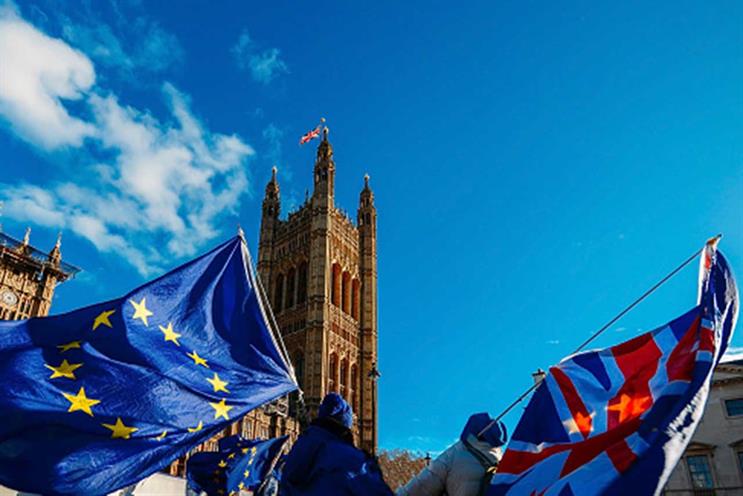The government advertising campaign preparing the UK for a no-deal Brexit went live on Sunday and it seemed like a straightforward public-information exercise. After this week’s events in Westminster, it’s less simple.
When Boris Johnson revealed in late July that he planned to splash £100m on advertising to prepare the public for a no-deal Brexit, many feared the campaign would be thinly disguised Conservative Party election materials funded by the taxpayer.
Government-sponsored public-information campaigns are not meant to stray into communications that could benefit the ruling party. However, given the current mood in Westminster, it was easy to imagine the prime minister bending the rules.
These concerns did not materialise.
The main poster for the campaign contains just four words in the headline and says simply "Get ready for Brexit". Some additional body copy encourages citizens to visit a website where they are walked through a series of questions that attempt to ascertain what changes they might need to make in the event of no deal.
Despite the pared-back, emotionless nature of the campaign, Labour MP Mary Creagh believes the campaign contravenes purdah rules that are designed to prevent governments from influencing election results using public resources.
Purdah rules come into effect once parliament is dissolved for an election. As an election hasn’t been called yet, and it’s hard to argue the messaging is partisan, it’s unlikely that Creagh’s complaint will get much traction.
However, if an election is called for 14 October – as most leading commentators seem to think – then parliament will need to be dissolved by 9 September; the Fixed-Term Parliaments Act requires dissolution 25 working days before a general election.
This will mean the "Get ready for Brexit" campaign will have to be pulled after being live for just eight days. How much money the taxpayer will save given the media will have been live for little over a week isn’t clear.
When leaving the European Union without a deal on 31 October is a likely outcome, the government’s campaign can be justified as a genuine attempt to persuade a sceptical public to take necessary precautionary measures.
It was reported that 42% of small- to medium-sized businesses in our multitrillion-pound economy said that they were unsure as to how they could get ready for Brexit; a statistic such as that made it easy to sympathise with those wondering whether £100m worth of advertising was enough to prepare Britain for no deal.
But if no deal is successfully taken off the table this week by a cross-party alliance of MPs and lords opposing the prime minister, and an election isn’t called, we will be faced with the bizarre situation of our government spending £100m on advertising to prepare citizens for an outcome that has been made impossible by parliament.
In our current political climate, even a four-word poster can be incredibly complicated.
Benedict Pringle is founder of politicaladvertising.co.uk


